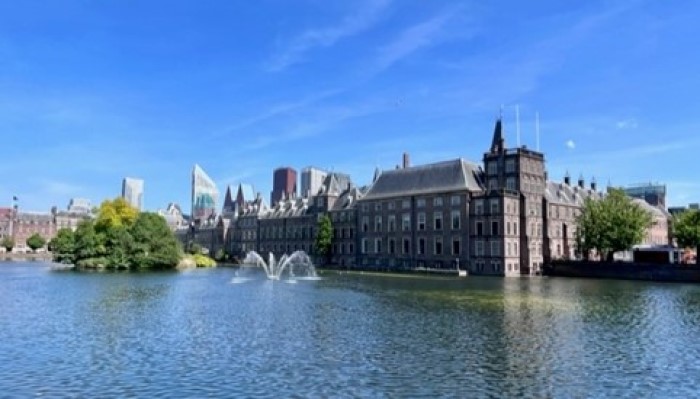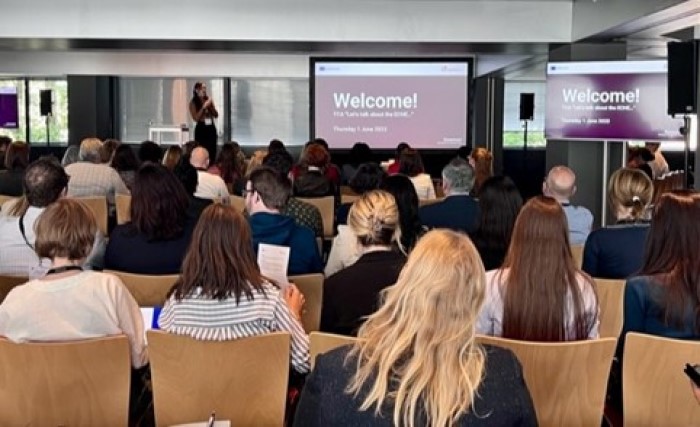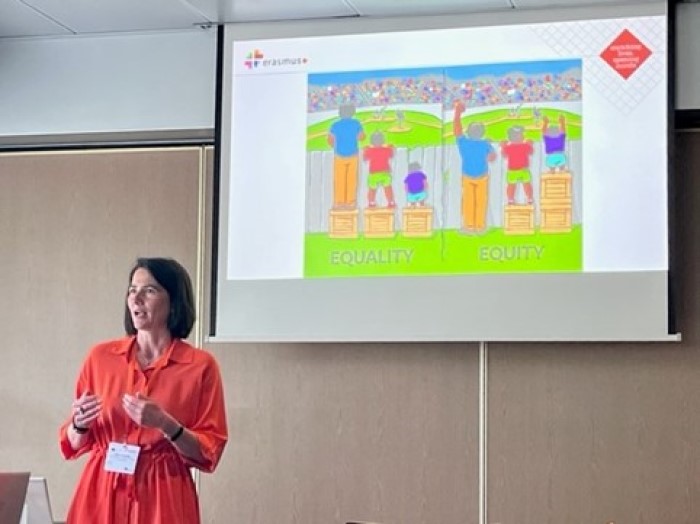Staff members of Universities and UAS can apply for thematic seminars from Finnish National Agency for Education. Laurea received two places at this seminar in Hague, Netherlands May 31-June 2nd, 2023.
 The Hague City Center, photo by Sini Aalto-Friman
The Hague City Center, photo by Sini Aalto-Friman
What is ECHE?
The Erasmus Charter for Higher Education (ECHE) provides the general quality framework for European and international cooperation activities. As a tool, the ECHE has particular power, in that HEIs in “programme countries” wishing to participate in Erasmus+ must first apply for an ECHE and then obtain it. Laurea has applied for ECHE and has received it. Therefore, we can organize international mobilities at Laurea.
The ECHE principles are not new. They build on the rules and tools elaborated over the last decades to ensure transparency, fairness, and effectiveness in the organization of student mobility. In the new ECHE though, more policy-oriented principles were added: Inclusion, Green Erasmus, Digital Transition, Participation in the Democratic Process. These topics are covered in 3UAS collaboration, Green Exchange Ambassador call, guides for green mobility etc. Laurea is also represented in Inclusion Academy, where I represent our international office and Laurea. More information about that will follow later.
The award of an ECHE asks for a greater involvement of HEI staff in fostering an institutional culture of strategic thinking, transparency, fairness, effectiveness, and true introduction of the new policy principles, rather than promoting simplistic adhesion to formal rules.
National Agencies in each country have the task to monitor how the HEIs comply with the ECHE principles. They encourage and support the HEIs with the implementation of the principles. During the seminar in Hague, we tackled the following questions:
- What is the state of play concerning the implementation of the ECHE principles by the HEIs in Europe?
- How do HEIs mobilize the implementation of the ECHE principles “at home”?
- Who is involved in the implementation of the ECHE at HEIs?
- How do NAs monitor the ECHE?
- Is there an ECHE strategy at the level of the NAs and/or HEIs?
- What concrete changes/improvements you would like to achieve when it comes to the implementation of the ECHE? (Formulate your own action plan)
The program of the seminar
On the first day, May 31st, 2023, we had a welcome and networking dinner. The seminar started on June 1 with mapping ECHE experiences in working groups. The opening session was followed by welcome words from the National Agency in the Netherlands, Petra de Greeve.
 Opening session, moderator Eliza Popper speaking. Photo by Sini Aalto-Friman
Opening session, moderator Eliza Popper speaking. Photo by Sini Aalto-Friman
The keynote speech was “Brining ECHE alive” by Madalena Pereira, Senior Policy Officer from Dutch National agency. We also heard about ECHE from student perspective from Juan Rayon Gonzalez, the President of ESN International.
The interactive sessions followed. I attended the inclusion session, where we shared experiences on inclusion regarding mobility and internationalization. Inclusion is one of the indicated pressure points of the ECHE for the current Erasmus+ programme (2021-2027). In the guidelines, it states that HEIs “Ensure equal and equitable access and opportunities to current and prospective participants from all backgrounds, paying particular attention to inclusion of those with fewer opportunities”. As well as “Respect in the full principles of non-discrimination, transparency and inclusion set out in the programme”.
 Workshop regarding Inclusion, Babet Hoeberigs. Photo by Sini Aalto-Friman
Workshop regarding Inclusion, Babet Hoeberigs. Photo by Sini Aalto-Friman
Other workshops that I attended were Green Erasmus and Blended Mobility. Green Erasmus is a priority of the Erasmus+ programme and has also been included as principle in the ECHE frame. We discussed current steps that organizations have taken for greener travel and exchanges and future prospects.
The notion of Blended Mobility is a key concept in ensuring the flexibility of and better access to the Erasmus+ programme. We discussed various implementations of blended mobility and discussed that blended mobility contributes to equal opportunities.
In the evening we ate dinner in Scheveningen and Manta Beach. The beach was beautiful and worth visiting in the summer.
The final day, June 3rd, after the opening, we drafted our own ECHE workplans in small groups. The panel discussion was about “The ECHE now and in the future”. We also heard about reflections by Svava Bergling Finsen from the European Commission. After wrapping up the days we said goodbye to all lovely colleagues from all around Europe.
The results
I gained a fresh perspective on ECHE and understood the importance of it. It was great to meet international staff members, Bologna experts and staff from national agencies from many countries. It was a great networking possibility. I got more awareness on the role and importance of the ECHE as an instrument for the quality of international mobility activities and the impact of internationalization. This seminar was a great possibility for the exchange of ideas and good practices regarding the monitoring and implementation of the ECHE. It was useful to make action plans for organizations, like Laurea for implementing and strengthening the principles of the ECHE. We will talk about these issues later as well in the international team. These principles should be known by all staff members of Laurea.